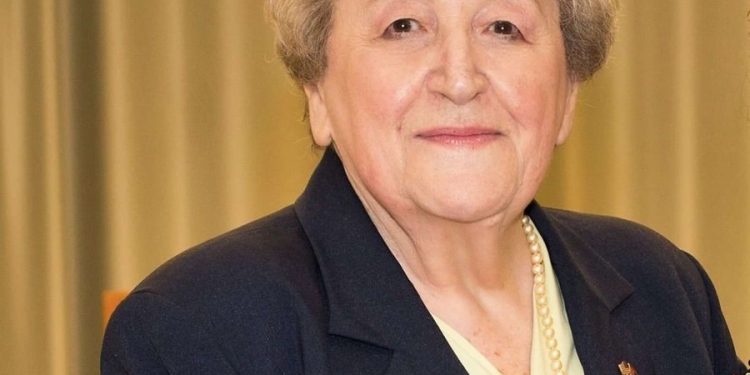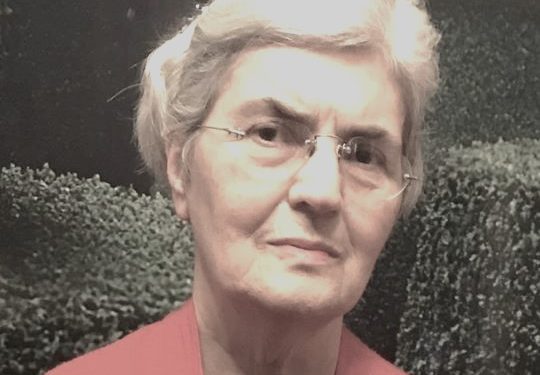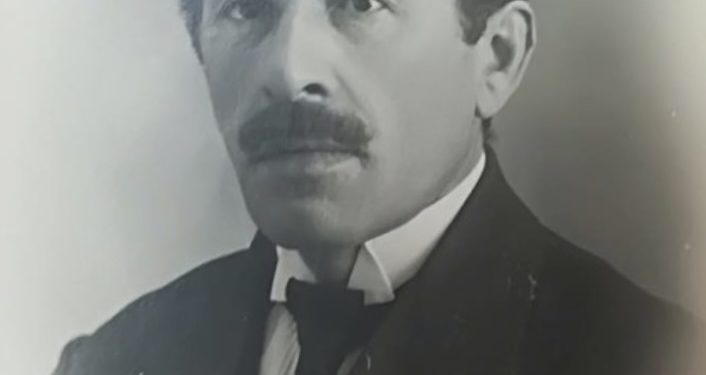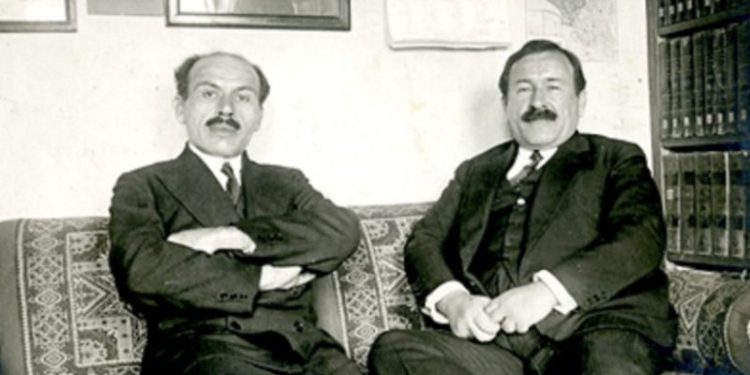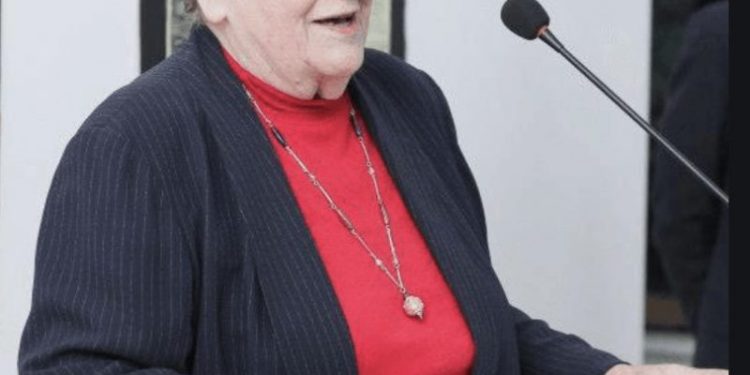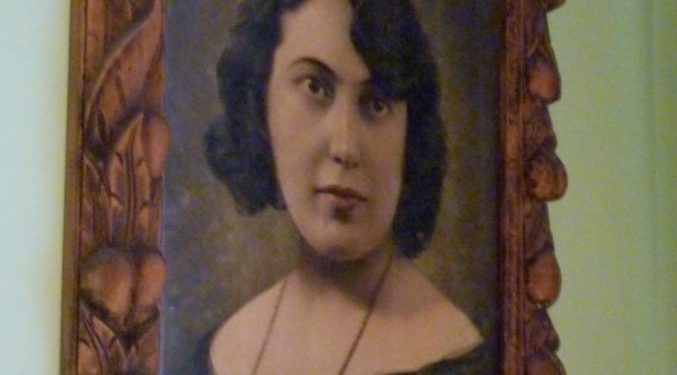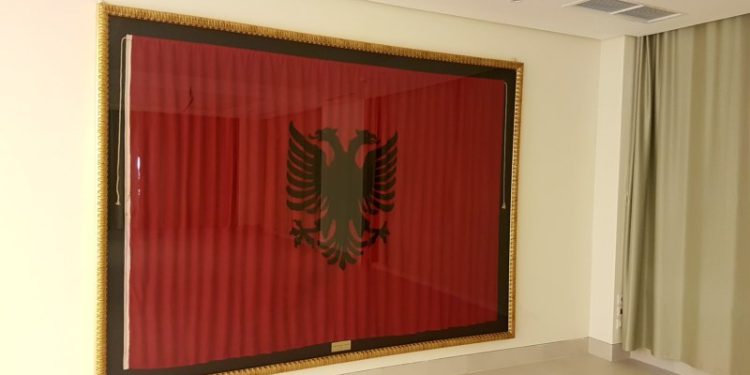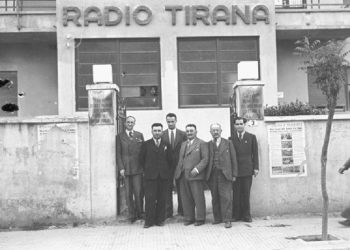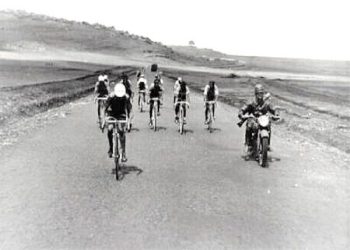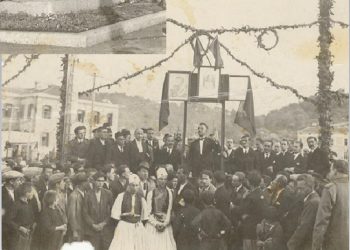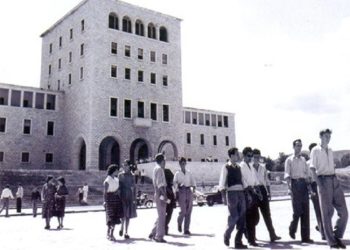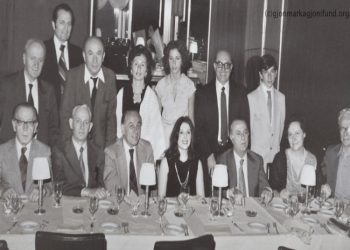Memorie.al/ The marriages of an Albanian man to a foreign woman and vice versa were not accidental. History has shown that distant marriages have been made at high levels of society, to create new friendships, to form peaceful alliances, or to secure protection. In modern times, the concept of marriage has undergone changes, based on moral and legal equality, and on feelings of love, respect, and understanding. Based on its principles and functions, its duties and obligations, couples have been united in thoughts and spiritual connection. Such was the marriage of Dr. Martin Ivanaj to Professor Gjyzeppina Pogliotti. Their union was an ideal combination.
‘Pina’ Pogliotti came from an old noble lineage, such as the Nasi family in Ghemme, Italy, which dated back to the 16th century. This family owned large properties in Ghemme and was renowned because it had produced: doctors, jurists, and even Prelates. On her mother’s side, Gjyzeppina’s great-aunt belonged to the English Collins family and was the owner of Caprera Island. She was a Maid of Honour to Queen VICTORIA in London.
Dr. Martini’s lineage was similar. The Ivanaj family tree is documented from the year 1444. Doda, Martin’s father, had a rich history in the fight against the Turkish occupier. This activity of the Ivanaj fighters was later projected with the participation of Martin’s uncle in the League of Prizren.
The Pogliotti family’s priority was the daughters’ school education. Gjyzeppina, like her sisters, attended the ‘Normal’ School for Women (‘Rosa Stampa’ College) in Vercelli and later pursued other studies in Turin. The older sister graduated from the University of Grenoble and taught French in Novara her entire life. Meanwhile, Gjyzeppina continued her studies in Turin, simultaneously working as an Executive Secretary at a “Fashion House” in Italy, an uncommon position for women at that time.
When Gjyzeppina, after her studies in Turin, went to Rome for a shorthand competition (as she was one of the seven students of Prof. Vincenzo Cima, editor of “La Stampa” and inventor of the shorthand system), she met Dr. Martin Ivanaj. The two Ivanaj brothers were students at “La Sapienza” in Rome and lived together in a rented house, which Miss Pogliotti was also looking for. They met there accidentally, invited to a dinner, and from there, the acquaintance took on other dimensions. What united them was mutual love which oriented and directed them toward each other. Dr. Martini was drawn to a girl who was self-harmonized with identity and personality, was educated, and had a working ethic, which made their inter-personal relationship and couple’s continuity even more dynamic. Mrs. Ivanaj now found it easy to adapt to a new co-existence, leaving Italy, where they had every opportunity to live and work at high levels of employment, as both were educated in Italy.
Mrs. Ivanaj, in her entirety, had great adaptation skills which led to the next step, recognizing, accepting, and honoring her husband with full confidence that: “we belong to each other”. Having the power of love, she turned toward the other, without denying herself. Although she came from a country with a different culture and language, she overcame that challenge with grace and commitment to nurturing family harmony. They decided to build their nest in Albania, because the country needed more educated people, especially in the field of justice, for which Dr. Martini had earned his Law Degree in Jurisprudence at ‘La Sapienza’ in Rome. Mrs. Ivanaj adapted completely naturally to the country’s traditions and customs. She quickly managed to speak the Albanian language as well.
In the house that the Ivanaj brothers, Martin and Mirash, built in New Tirana, Mrs. Ivanaj lived in complete harmony with her brother-in-law, Prof. Mirash, who did not marry after the death of his beloved, a Roman girl, who was a descendant of the family of GIUZEPPE MAZZINI, (politician, journalist, revolutionary activist for the unification of Italy, anti-Marxist). Mirash Ivanaj kept this strong connection with his chosen maiden until the end of his life, keeping her braid as a keepsake until death. (For your information, after Prof. Mirash’s death in prison, the braid managed to leave the prison only after the ’90s, with Dr. Lazër Radi, who had preserved the trust of his fellow prisoner and handed it over to Drita, the only relic left by her uncle, Mirash.)
Meanwhile, Dr. Martini was spending his most beautiful days with Professor Pogliotti. Seeing her adaptation to the Ivanaj family, he would address her saying: ‘You are the Queen of this house’. The environment where they lived together was not just a shelter, but it was a school, it was a cultural center, where the most valuable thing was the library, which held over 16 thousand book titles. In the studio rooms of that house, two written codes were drafted by Dr. Martini (then President of the Court of Cassation); the Civil Code and the Penal Code, and the Educational Reform, which still bears that name today, ‘Ivanaj Reform 1935′, was drafted by Prof. Mirash. So, we are dealing with two thinkers, professional scholars, and a Lady with whom they could discuss various problems because she, too, was prepared in many fields.
The family’s joy increased when Martin and Gjyzeppina’s daughter, Drita, was born, whom they baptized with that name, as if to illuminate the centuries-old tree of the Ivanaj lineage. The Lady in question, despite her Italian origin, had no objection to the name, but pronounced it with pleasure, recognizing the symbolism of that beautiful Albanian word, Dritë (Light), which gave illumination to the whole family.
Mrs. Ivanaj established her family in Albania in a society where the patriarchal family existed, but the freedom of thought and attitude in that family gave further impetus to the judgment that success in family life is a prerequisite for success in social life actions as well. The most successful mechanism operating in Mrs. Ivanaj’s personality was the balance with herself and others. Thus, the new relationship with her daughter opened new windows, dedicating herself to her not only as a mother but as a genuine educator and teacher. In a notebook dedicated to her daughter, she wrote among other things: “The Golden Key:…. When you are hungry for something great, be it material or spiritual in nature, do not forget that a single key can open all doors, open every corner, and magically eliminate every obstacle. That golden key is called; faith [belief/trust].”
This co-existence of happiness in the Ivanaj family was broken by the fascist occupation of Albania, with which the Ivanaj brothers could never adapt; on the contrary, they were ready to fight against the occupier. The government’s obstruction of organizing the resistance caused the Ivanaj brothers to immigrate as political asylum seekers to Istanbul.
Mrs. Ivanaj, left with 6-year-old Drita, who was attending elementary school in Tirana, initially resisted leaving the house and Albania, but when the fascists mercilessly confiscated her property and everything she owned, up to physical threat, she was forced to go towards Italy, where her parents were, with the thought that they would soon reunite in Albania.
This Lady, strong in character with a rare intelligence, did not lose her direction but with courage and faith, she gathered the most important documentation that this family possessed, and her noblest gesture was, when unable to take belongings, she folded the Albanian flag and placed it in the safest place to take it with her. I do not know if any of the Albanian refugees have done this act. She never forgot the words of Prof. Mirash, when he repeated quotes from Mazzini, whose follower he was: “Patriotism is a duty, while love for the Homeland is a divine mission.” She knew with what pain the brothers left the Homeland. Therefore, she did not let the flag be trampled by the invaders, considering it a national and historical symbol. She fanatically preserved that red cloth with the proud double-headed eagle, with which she traveled all the way to America, when she emigrated with Drita.
Both, mother and daughter had Albanian passports, so staying in Italy was difficult. It was not easy for Mrs. Ivanaj to find employment, now as a foreign citizen, and neither was Drita’s schooling with the Albanian name, which she never agreed to change, but kept with pride.
Drita only managed to complete one school year in Albania; then she finished elementary school, gymnasium, and later the Scientific Lyceum in 1951 in Italy, with high results. She refuted the foreigners’ mentality about Albanians when she advanced two classes in one school year, which earned her right to a scholarship in that country. Nevertheless, the Italian mother, widowed after the death of Dr. Martini in Istanbul in 1940, doubled her responsibility towards her daughter. Even though she was living with her parents, she could not hinder Drita’s future.
The two of them, mother and daughter, with Albanian passports, had the opportunity to immigrate to the USA under the support of the United Nations. In Mrs. Ivanaj’s diary, the journey of December 1951 remains vivid, on board an American military ship, through the raging ocean waves, where they carefully guarded their Albanian passports and the national flag. With this valuable relic, a symbol of resistance, they also united their self-sacrifice, exalting themselves as part of this ethnicity.
Meanwhile, Mrs. Ivanaj did not sever ties with her brother-in-law, Prof. Mirash, even when he returned to the homeland, and even when he was in prison. She informed him about the new developments of his beloved niece, Drita. The sister-in-law did much, writing letters, even to the highest organs of Italy, regarding the innocence of Prof. Mirash, but Enver Hoxha’s regime knew no justice, especially for the educated people.
She knew the strength of Prof. Mirash’s character, as a teacher, high school director, Minister of Education, up to the High Council of Justice, where he gave an exemplary contribution, despite being an opponent of the Monarchy. She knew his self-awareness that he had served his own people, who had a great need for the knowledgeable teacher. That honorable lady never stopped writing to seek justice for her martyred brother-in-law, Dr. Mirash Ivanaj.
Mrs. Ivanaj, in addition to her daily work in New York, wrote in an Italian literary magazine about hundreds of biographies of Italian immigrants in America. After eight years of uninterrupted work, in January 1960, she passed away, leaving Drita in sorrow, but with the instruction to continue life with optimism.
Drita kept her image in her mind and heart. That mother inspired and continues to inspire her even today to live with dignity, systematically, and demanding of herself. The Mother’s instructions, to be of service to others as a missionary, but without denying herself, have found perfect implementation in Drita. Even today, she recalls her words, when her mother wrote to her:
“I only envy those who ‘give’, not those who ‘have’ or ‘take’. Whoever gives bestows a joy and gives the same feeling to one, no less valuable. Also, easily and with pleasure, he, she, secures eternal happiness for oneself.” – Pina Pogliotti, née Ivanaj
Drita, like few others, has fundamentally mastered the technology of the time, to solve many problems, but you are surprised when she says: I am consulting with my parents. With the force of will, she overcomes all barriers, and she still retains this magic of competence from her mother’s wisdom, who wrote to her:
“When, therefore, you desire something, do not pray to God for ‘that thing’, but for faith [belief/trust]; not an apparent faith, but faith in yourself. With it, you can achieve not only one conquest, but you can conquer the whole world. Then you will be a lord on earth and exalt yourself above it, extending in time and space without limit, not only as a unit of knowledge and life, but gaining power over you and people.”
Drita spent many years alone at home, but without creating a void in her spiritual, social, and professional life; she was always progressing. Her managerial and leadership skills in the computer system of Columbia University made her valued and honored in that department and in social life.
Drita’s dream was to transmit her experience to the Albanian youth through the school system, but it was impossible to practice that profession in the dictatorial system of Albania. After many years of waiting to come to Tirana, Drita was given the opportunity to touch Albanian soil after 54 years, when none of her dearest relatives were still alive.
An invitation from the management of the Shkodra Gymnasium in 1993, to participate in the ceremony of awarding the “Martyr of Democracy” decorations. This memorial for Prof. Dr. Mirash Ivanaj gave her wings to fly towards Albania. It was moving when she got off the plane, bowing down to her knees, to kiss the motherland. Her tears were followed by all the greeters at the airport; it was a very emotional moment and a harbinger that the dictatorship would not return to bring tears to the Albanians.
Drita’s arrival in Tirana was not merely a visit to quell a longing. She came with clear visions to put all her intellectual potential at the service of the Homeland. Initially, she sought to bring her father’s remains from Turkey back to the homeland, facing a very difficult psychological situation after a half-century separation from her father. She placed the two brothers, Martin and Mirash Ivanaj, in a joint memorial with the epitaph: “Together in life and death for the Homeland.”
The determination to overcome all bureaucratic barriers made her more consistent towards her rightful demands. Just to reclaim the occupied house nationalized by the communists, she went through a long ordeal of back-and-forth until she finally achieved it. In that house, she established the offices of the “Martin and Mirash Ivanaj – Institute” Foundation, similar to its sister foundation in New York. There, on the balcony of the house, Drita unfolded the Albanian flag, preserved by her mother, Pina Pogliotti Ivanaj. There, the red and black flag halted its long journey: Albania, Italy, USA, and finally in its own place, in Albania. Now in Tirana, the flag, a symbol of the history of the Albanian people, waves freely on the facade of the Ivanaj House, to show a part of the painful history during the communist dictatorship./Memorie.al




